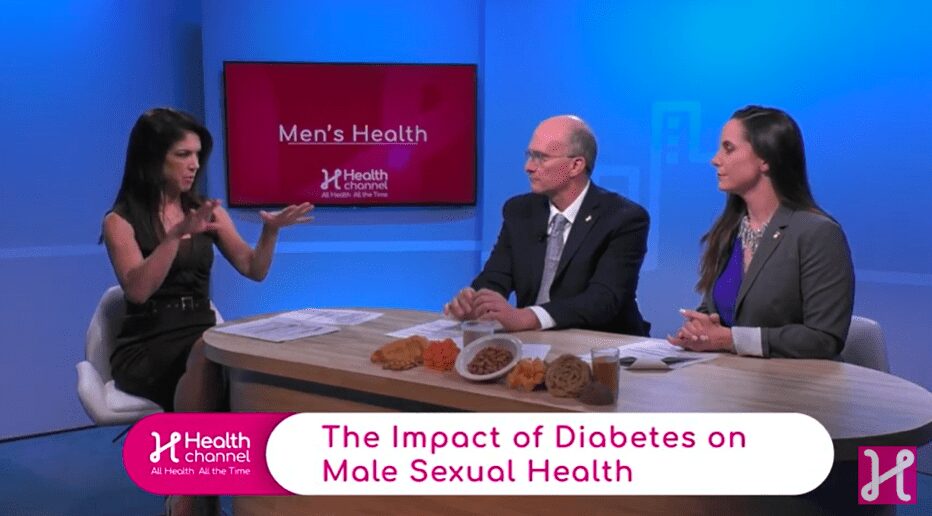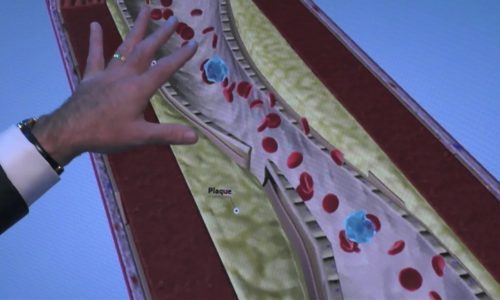Diabetes and Male Sexual Health |

In an interview with the Health Channel, Dr. Pascual De Santis, an Endocrinologist with Baptist Health South Florida, discusses how diabetes can affect male sexual health.
There are several ways in which diabetes can affect men. Number one, there is an increased incidence of something called obstructive sleep apnea in diabetic men. This can lead to fatigue, which contributes to erectile dysfunction.
There is also an increased incidence of low testosterone levels in men with diabetes and there is an increased incidence of erectile dysfunction. Erectile dysfunction does not necessarily have to relate to testosterone levels. It can also be related to the complication of neuropathy and decreasing blood flow, which can combine to cause erectile dysfunction.
Neuropathy arises from the complications of microangiopathy that can occur in patients with long term diabetes. With complicated and out of control diabetes, the nerve endings can be damaged or malfunction. There are multiple ways this neuropathy manifests. There is somatic neuropathy that can manifest as tingling, numbness, and some sort of a lack of feeling in the extremities. There is also autonomic neuropathy which can manifest in many ways like tachycardia, orthostatic hypotension, which means lack of balance in terms of blood pressure, and erectile dysfunction.
Watch the full segment discussing how diabetes can cause erectile dysfunction with Dr. Pascual De Santis, here: https://youtu.be/wmgJ8o9zd4s








